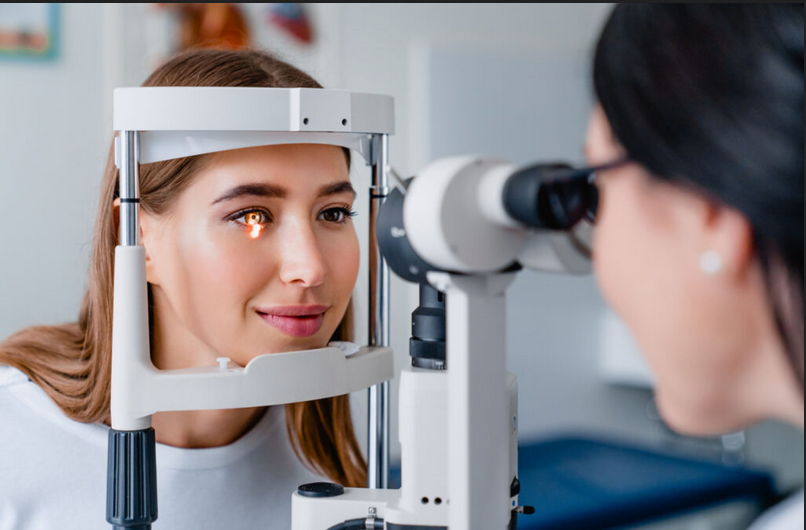Our eyes are one of the most important organs in the body, yet they are often neglected in daily health routines. With increasing screen time, digital dependence, environmental pollution, and aging, eye health problems are becoming more common than ever. Blurred vision, dry eyes, eye strain, and age-related conditions like cataracts and glaucoma affect millions worldwide. Fortunately, with the right eye care practices, you can protect your vision, improve eye health, and prevent long-term damage.
In this article, we’ll explore practical eye care tips, lifestyle changes, nutrition, and preventive measures to maintain healthy eyesight naturally.
1. The Importance of Eye Care
Good vision is vital for daily life, whether it’s reading, working, driving, or enjoying nature. Eyes not only allow us to see but also affect our overall well-being and productivity. Neglecting eye health can lead to vision problems that may worsen over time. Regular eye care is essential to:
-
Prevent eye strain and fatigue
-
Reduce the risk of vision loss
-
Detect underlying health issues (like diabetes or hypertension) early
-
Improve quality of life
2. Common Eye Problems Today
Before learning how to care for your eyes, it’s important to understand the common issues people face:
-
Digital Eye Strain (Computer Vision Syndrome): Caused by prolonged screen exposure. Symptoms include dryness, headaches, blurred vision, and irritation.
-
Dry Eyes: Often linked to pollution, dehydration, or lack of blinking during screen use.
-
Myopia (Nearsightedness): Increasing among children and adults due to reduced outdoor time and excessive screen usage.
-
Cataracts and Glaucoma: Age-related conditions that can lead to blindness if untreated.
-
Macular Degeneration: Gradual loss of central vision, often due to poor nutrition and aging.
3. Essential Eye Care Tips
Here are proven tips to keep your eyes healthy and your vision clear:
(a) Follow the 20-20-20 Rule
Every 20 minutes of screen use, look at an object 20 feet away for at least 20 seconds. This helps reduce digital eye strain.
(b) Maintain Proper Lighting
Avoid working in dim light or direct glare. Use soft, ambient lighting to reduce strain on your eyes while reading or using digital devices.
(c) Blink Often
When staring at screens, people tend to blink less, leading to dry eyes. Make a conscious effort to blink frequently to keep eyes moist.
(d) Keep Screens at Eye Level
Position your computer or phone at eye level to avoid strain on the eyes and neck. Maintain at least an arm’s length distance from screens.
(e) Wear Sunglasses
Protect your eyes from harmful UV rays by wearing sunglasses outdoors. Prolonged UV exposure can cause cataracts and macular degeneration.
(f) Stay Hydrated
Drink plenty of water to prevent dryness and maintain natural tear production.
(g) Get Adequate Sleep
Sleep is essential for eye health, allowing eyes to rest, repair, and stay refreshed.
4. Nutrition for Healthy Eyes
What you eat directly impacts your vision. Include these eye-friendly nutrients in your daily diet:
-
Vitamin A: Found in carrots, spinach, and sweet potatoes. Prevents night blindness and supports clear vision.
-
Vitamin C: Found in oranges, kiwi, and bell peppers. Protects against cataracts and oxidative stress.
-
Vitamin E: Found in almonds, sunflower seeds, and avocados. Helps prevent age-related damage.
-
Omega-3 Fatty Acids: Found in fish, chia seeds, and walnuts. Prevents dry eyes and supports retinal health.
-
Lutein and Zeaxanthin: Found in leafy greens like kale and spinach. Protects eyes from harmful blue light.
-
Zinc: Found in pumpkin seeds, chickpeas, and beef. Supports retina function.
5. Eye Exercises for Relaxation
Simple exercises can help strengthen your eyes and relieve fatigue:
-
Palming: Rub your hands together to generate heat and gently place them over your closed eyes for relaxation.
-
Focus Change: Hold your finger near your face, focus on it, then shift your focus to a distant object. Repeat several times.
-
Eye Rolling: Slowly roll your eyes clockwise and counterclockwise to reduce strain.
-
Figure 8 Exercise: Imagine a large “8” and trace it with your eyes to improve flexibility.
6. Lifestyle Habits for Better Eye Health
In addition to diet and exercises, your lifestyle plays a huge role in maintaining healthy eyes:
-
Quit Smoking: Smoking increases the risk of cataracts and macular degeneration.
-
Control Screen Time: Limit unnecessary phone and computer use. Encourage children to spend time outdoors to reduce myopia risk.
-
Regular Physical Activity: Exercise improves blood circulation, which benefits the eyes.
-
Manage Chronic Conditions: Conditions like diabetes, high blood pressure, and cholesterol can affect eye health. Keep them under control.
7. Preventive Eye Care
Prevention is better than cure. Here are some measures you can take:
-
Regular Eye Check-ups: Visit an eye specialist every 1–2 years, even if you don’t notice problems. Early detection of glaucoma or cataracts can save vision.
-
Use Protective Eyewear: Wear safety glasses when working with chemicals, machinery, or during sports.
-
Limit Blue Light Exposure: Use blue light filters on devices or wear computer glasses to protect your eyes.
-
Maintain Hygiene: Avoid touching your eyes with dirty hands and replace contact lenses as instructed.
8. When to See a Doctor
Seek medical attention if you experience:
-
Persistent blurred or double vision
-
Frequent headaches linked to vision
-
Red, swollen, or painful eyes
-
Sudden flashes of light or floaters
-
Difficulty seeing at night
Early treatment can prevent serious complications.
Conclusion
Your eyes are priceless, and caring for them should be a daily priority. By following simple eye care tips—such as eating nutrient-rich foods, practicing the 20-20-20 rule, exercising your eyes, and scheduling regular check-ups—you can protect your vision and prevent long-term problems. With the right habits, you can enjoy clear, healthy eyesight well into old age.
Remember: Healthy eyes mean a healthier, more fulfilling life.






